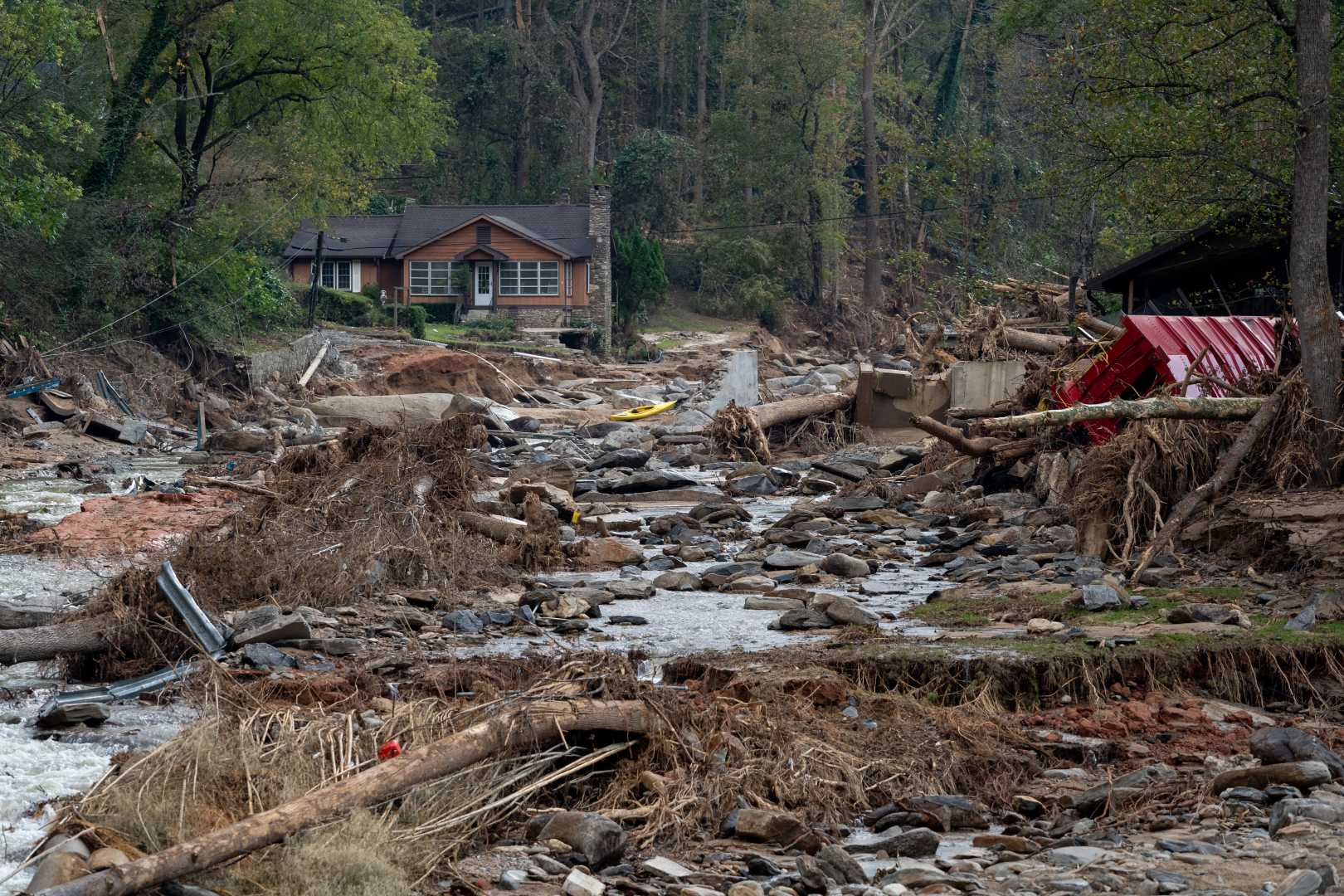News
Climate Havens Under Scrutiny as Extreme Weather Hits Asheville

Milton, a formidable hurricane that rapidly intensified from a Category 2 to a Category 5 storm, has sparked discussions about whether an additional category should be created to better depict the growing intensity of storms due to climate change. While the current Saffir-Simpson scale, used since the 1970s, stops at Category 5, climate scientists like Michael Wehner from the Lawrence Berkeley National Laboratory and Jim Kossin, a former federal scientist, note the unprecedented intensities now seen in storms.
This development coincides with an unforeseen impact of Hurricane Helene on the East Coast of the United States. Asheville, North Carolina, once considered a “climate haven” due to its historically mild climate, was severely affected by the hurricane, challenging perceptions of safe refuge from climate change-driven weather events.
Mary Ann Roser and her husband, who recently moved to Asheville from Austin, Texas, for its perceived climate resiliency, were surprised by the hurricane’s impact. “We introduced ourselves as ‘climate refugees from Austin,'” Roser said. Their relocation aimed to escape intensifying summer heat and was based on Asheville’s distance from the coast and lower risk of drought and wildfires.
According to an international association of climate scientists, human-caused climate change likely increased Hurricane Helene’s rainfall by 10%. Kelsi Krosby, a senior scientist with the University of Washington, highlighted the dilemma facing those seeking climate havens. “People are looking for places they can feel safe,” Krosby said, but added that it is “both a privilege and a fantasy to think that we can escape to someplace perfectly insulated from the climate crisis.”
Claudia Montano, a professor at Massachusetts Maritime Academy, warned about the concept’s oversimplification, pointing out that no location is entirely risk-free. North Carolina, for instance, is still vulnerable to inland flooding from its proximity to the Atlantic Ocean. Additionally, certain infrastructure is not equipped to deal with extreme weather, making impacts potentially more severe.
The ability to move away from climate risks is viewed as a privilege not available to all. As Krosby pointed out, “Climate flight will leave behind people and places that are most vulnerable and in need of community support.” Moreover, displacement affects Tribal communities deeply tied to their lands, as noted by Mavis Rodriguez, executive director of the Indigenous-led nonprofit based in Washington.
Amidst these challenges, the experience for some, like Brighton Lahr, a former park ranger who moved from California, underscores the need for action on the root causes of global warming. After facing personal losses due to hurricanes and wildfires, she advocates for addressing global warming’s drivers, particularly fossil fuel emissions.
Roser, despite some disturbances caused by the hurricane, does not regret relocating to Asheville. She recognizes that climate change is a pervasive issue affecting all regions. “There’s no outrunning climate change,” Roser said. “It’s a global phenomenon.”












